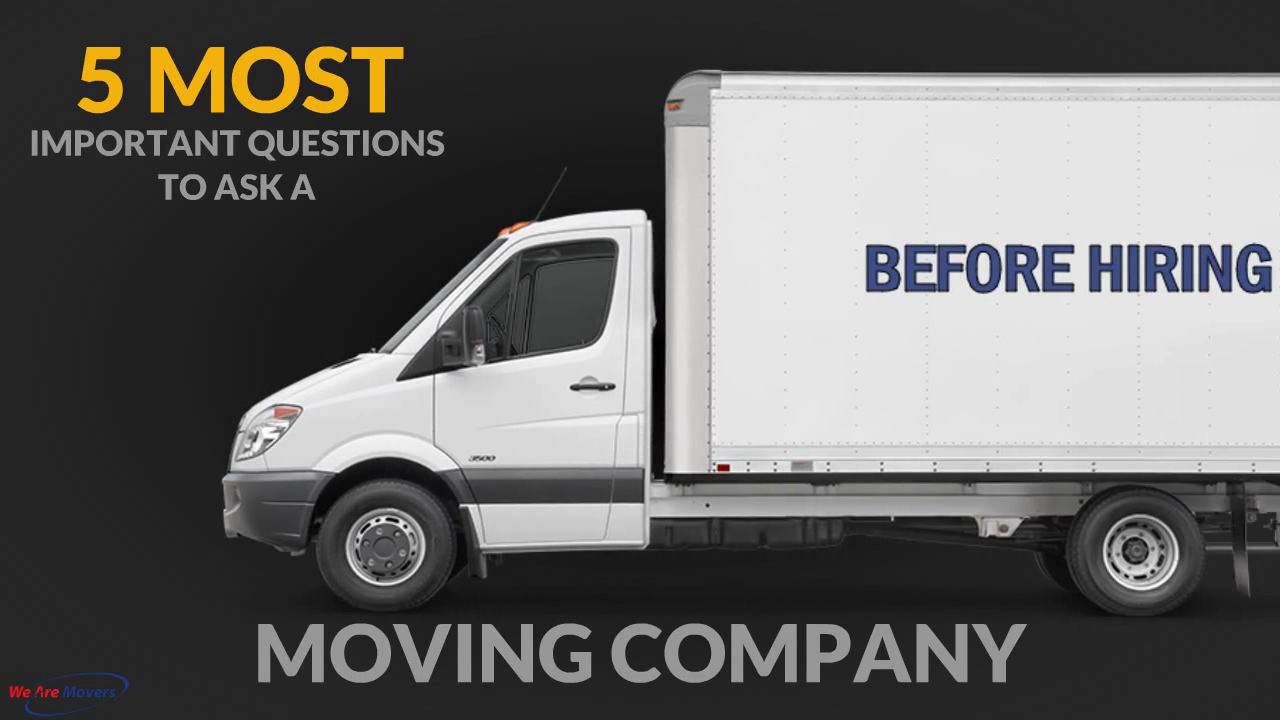What To Know
- For Full Value Protection, the moving company is liable to replace every lost or damaged items in your entire shipment whereas, for Released Value Protection, the mover accepts liability of 60 cents per pound which may not be enough to cover the real cost of the damaged item.
- A binding, written estimate should include all charges and both you and the mover must sign it to be an agreement and you must be provided with a copy.

It may also include additional services like cleaning of houses, offices and warehouse. Moving to a new location involves making several decisions in a short time. Some of these decisions involve choosing the right relocation date and moving company.
With thousands of local and interstate moving companies located everywhere, there are several choices to make but you must ask the right questions before hiring any of them to avoid falling into the hands of rogue movers.
These questions will also help you assess if the mover is dependable as many of them try to look legitimate. You must also try to investigate the company’s history and website to be sure that their website represents their resources and abilities and that they have past satisfied customers and successful reviews. The quality and thoroughness of their response will help decide which moving company to go for.
Here are 5 key questions to ask your moving company before you hire them.
- Are you registered, licensed and insured?
Be sure to ask if the moving company is properly registered, licensed and insured to avoid being scammed by rogue movers. A license number is issued by the United States Department of Transportation only to Professional interstate moving companies. Local movers are regulated by the state and they hold a state license.
Before hiring the company, make sure your belongings are insured in case of damage during the relocation. The company should have liability coverage options for you, be it Full Value Protection or Released Value Protection.
For Full Value Protection, the moving company is liable to replace every lost or damaged items in your entire shipment whereas, for Released Value Protection, the mover accepts liability of 60 cents per pound which may not be enough to cover the real cost of the damaged item.
Before you purchase additional insurance, check your home insurance policy to see if they have insurance coverage for moving.
Every legitimate, professional, licensed moving company should be ready to show their insurance policy whenever the need arises. Always look for a mover with valid Utility and Transportation Commission (UTC) permit. You can check it on WUTC website or call WUTC on 1-800-562-6150.
- Do you have Reference/Recommendations?
Any reputable moving company should be able to provide reference and feedback from satisfied clients.
Before hiring a moving company to handle your items, ask for their references and they should be able to provide you with all related information. You can still do your own findings by double-checking the company’s online review and ratings. Click here to check customer reviews for more than 500 moving companies nationwide. Asking friends, colleagues and neighbors is also a good alternative.
Most times, relocation company’s review and ratings include: their US DOT number, Better Business Bureau rating, any official complaints filed with the Federal Motor Carrier Safety Administration (FMCSA) or if the company has any link with the American Moving & Storage Association.
- Can you provide binding Quotation/Estimate?
Obtaining a written estimate that is binding; from a moving company is an important part of working with Professional movers. This binding quotation/estimate means that, you are protected by Washington Utilities and Transportation Commission (WUTC) which will ensure that, you don’t pay more than 25% above the estimate.
Don’t accept verbal estimate from movers as such estimate is not binding and you could be charged higher than estimated. Most movers offer non-binding estimate which means the estimated price could be changed depending on actual cost.
A binding, written estimate should include all charges and both you and the mover must sign it to be an agreement and you must be provided with a copy. Method of payment should also be included in the estimate.
Most companies provide per pound rate and a distance rate. Make sure you don’t hire a company that offers a quote based on cubic feet. Every company’s estimate should be based on weight especially if you are moving a long distance.
For short distances, some movers will charge on hourly rate, but the hourly rate and the rate per pound will not change whereas the estimate can change depending on the type of estimate the company provides.
- Do you sublet to subcontractors or use day labourers?
Some big moving companies usually sublet to smaller companies. If you encounter this, ask for the subcontractor’s name which should not be withheld. Be sure to examine the subcontractor’s driver before accepting to use them.
Avoid using companies that hire day labourers as they (day labourers) are not employed permanently but they are just paid for the daily job done with no expectation of future work. With this, your items may not be in safe hands.
- Will you provide required services like unloading, unpacking, appliance reconnection at the final destination?
Before meeting with the representative of the moving company, check the services page on their website to see if they offer services like packing, wrapping, loading, unloading, and unpacking at extra or no extra charge. A moving company’s job is not complete until you’re well satisfied.
If you’re preparing for relocation, these are most important questions you should ask the moving company but you can also ask them questions on your personal need.
Be reminded that meeting the movers in person will give you a feel of what to expect as most of them will put you at ease and make you feel relax as you move into your new home.





